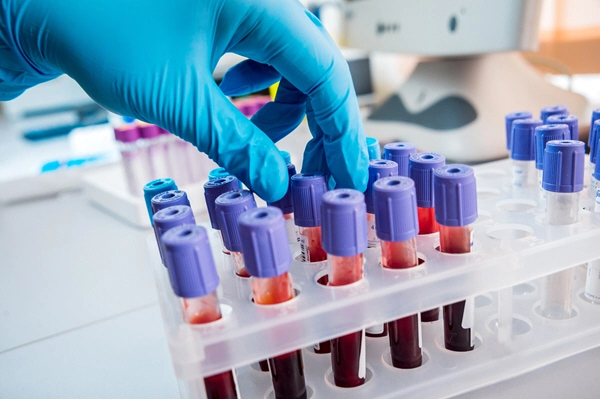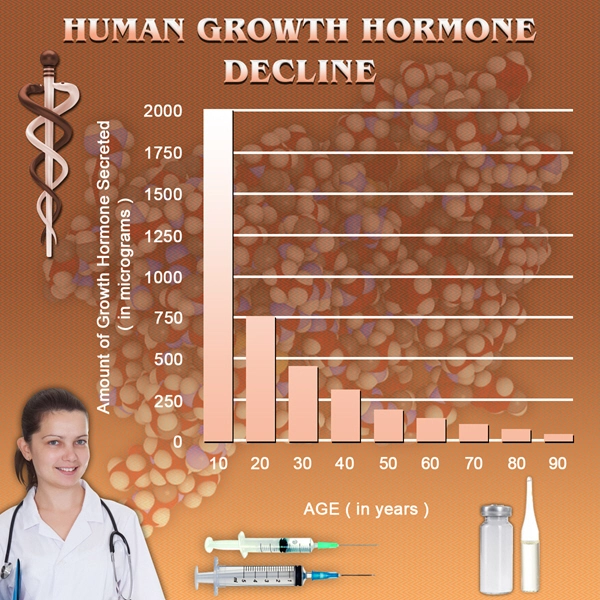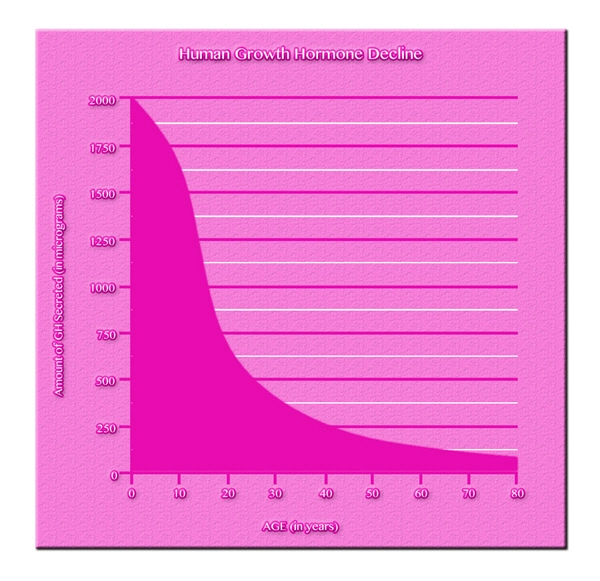Introduction to Late-Onset Hypogonadism
Late-onset hypogonadism (LOH), often referred to as age-related low testosterone, is a clinical and biochemical syndrome associated with advancing age. It is characterized by a deficiency in serum testosterone levels and the presence of symptoms such as reduced libido, decreased muscle mass, increased body fat, and fatigue. In recent years, the potential impact of LOH on cognitive function has garnered significant attention among researchers and healthcare professionals.
The Prevalence of Late-Onset Hypogonadism Among American Men
In the United States, LOH is increasingly recognized as a common condition among aging men. Studies suggest that approximately 20% of men over the age of 60 and up to 50% of men over the age of 80 may experience symptoms of LOH. Given the aging demographic in America, understanding the full scope of LOH's effects, including its influence on cognitive health, is crucial for enhancing the quality of life for affected individuals.
Cognitive Function and Testosterone Levels
Testosterone, the primary male sex hormone, plays a pivotal role in various physiological functions, including the maintenance of cognitive abilities. Research has indicated that testosterone receptors are present in areas of the brain associated with memory, learning, and executive functions. As testosterone levels decline with age, there is a growing body of evidence suggesting a correlation between low testosterone and diminished cognitive performance.
Clinical Evidence Linking LOH to Cognitive Decline
Several clinical studies have explored the relationship between LOH and cognitive function. A meta-analysis published in the *Journal of Clinical Endocrinology & Metabolism* found that men with LOH exhibited poorer performance in tasks assessing memory, attention, and executive function compared to their counterparts with normal testosterone levels. Moreover, longitudinal studies have shown that men experiencing a more rapid decline in testosterone levels over time tend to show a corresponding decrease in cognitive abilities.
Mechanisms Behind Cognitive Impairment in LOH
The mechanisms by which LOH may contribute to cognitive decline are multifaceted. One theory suggests that low testosterone levels may lead to reduced neurogenesis and synaptic plasticity in the hippocampus, a brain region critical for memory formation. Additionally, testosterone deficiency has been associated with increased oxidative stress and inflammation, both of which can adversely affect brain health. Furthermore, the psychological symptoms of LOH, such as depression and fatigue, can indirectly impact cognitive function by reducing motivation and concentration.
The Role of Testosterone Replacement Therapy
Testosterone replacement therapy (TRT) has emerged as a potential treatment for LOH, with some studies suggesting that it may help mitigate cognitive decline. A randomized controlled trial published in *Neurology* demonstrated that men receiving TRT showed significant improvements in verbal memory and executive function compared to those receiving placebo. However, the use of TRT is not without controversy, and further research is needed to establish its long-term safety and efficacy in improving cognitive outcomes.
Lifestyle Interventions and Cognitive Health
In addition to pharmacological treatments, lifestyle interventions play a crucial role in managing LOH and supporting cognitive health. Regular physical exercise, a balanced diet rich in omega-3 fatty acids and antioxidants, and adequate sleep are all essential for maintaining optimal testosterone levels and cognitive function. Moreover, engaging in mentally stimulating activities and social interactions can help preserve cognitive abilities as men age.
Conclusion: Addressing LOH for Cognitive Well-being
Late-onset hypogonadism is a significant health concern for aging American men, with potential implications for cognitive function. By understanding the link between LOH and cognitive decline, healthcare providers can better tailor interventions to improve the quality of life for affected individuals. While testosterone replacement therapy offers promise, a holistic approach that includes lifestyle modifications is essential for promoting cognitive well-being in the face of age-related hormonal changes. As research continues to evolve, it is imperative that men remain proactive in monitoring their health and seeking appropriate care to maintain their cognitive vitality.

- Exploring Alternative Therapies for Late-Onset Hypogonadism in Middle-Aged and Older Men [Last Updated On: February 25th, 2025] [Originally Added On: February 25th, 2025]
- Economic Impact of Late-Onset Hypogonadism on U.S. Men's Healthcare [Last Updated On: March 17th, 2025] [Originally Added On: March 17th, 2025]
- Late-Onset Hypogonadism: Impact on Muscle Mass and Management in Aging American Men [Last Updated On: March 18th, 2025] [Originally Added On: March 18th, 2025]
- Genetic Factors in Late-Onset Hypogonadism: Insights for American Males [Last Updated On: March 19th, 2025] [Originally Added On: March 19th, 2025]
- Exploring Late-Onset Hypogonadism: Current Treatments and Future Innovations [Last Updated On: March 20th, 2025] [Originally Added On: March 20th, 2025]
- Late-Onset Hypogonadism: Symptoms, Impacts, and Treatment in American Males [Last Updated On: March 20th, 2025] [Originally Added On: March 20th, 2025]
- Managing Late-Onset Hypogonadism: Symptoms, Lifestyle, and Medical Interventions for American Men [Last Updated On: March 20th, 2025] [Originally Added On: March 20th, 2025]
- Late-Onset Hypogonadism: Effects on Mood, Energy, and Management in American Men [Last Updated On: March 21st, 2025] [Originally Added On: March 21st, 2025]
- Late-Onset Hypogonadism: Understanding, Diagnosing, and Managing Low Testosterone in American Men [Last Updated On: March 21st, 2025] [Originally Added On: March 21st, 2025]
- Nutrition's Role in Managing Late-Onset Hypogonadism in American Males [Last Updated On: March 21st, 2025] [Originally Added On: March 21st, 2025]
- Late-Onset Hypogonadism: Impact on Fertility and Treatment Options for American Men [Last Updated On: March 22nd, 2025] [Originally Added On: March 22nd, 2025]
- Understanding Late-Onset Hypogonadism: Risks and Benefits of Testosterone Therapy [Last Updated On: March 22nd, 2025] [Originally Added On: March 22nd, 2025]
- Early Detection and Management of Late-Onset Hypogonadism in American Males [Last Updated On: March 22nd, 2025] [Originally Added On: March 22nd, 2025]
- Managing Late-Onset Hypogonadism in Aging American Men: Symptoms, Treatment, and Lifestyle [Last Updated On: March 22nd, 2025] [Originally Added On: March 22nd, 2025]
- Exercise as a Key Strategy for Managing Late-Onset Hypogonadism in American Males [Last Updated On: March 23rd, 2025] [Originally Added On: March 23rd, 2025]
- Late-Onset Hypogonadism: Benefits of Early Intervention in American Men [Last Updated On: March 23rd, 2025] [Originally Added On: March 23rd, 2025]
- Managing Late-Onset Hypogonadism: Diagnosis, Treatment, and Lifestyle Strategies for Men Over 40 [Last Updated On: March 23rd, 2025] [Originally Added On: March 23rd, 2025]
- Exploring the Link Between Late-Onset Hypogonadism and Diabetes in American Males [Last Updated On: March 23rd, 2025] [Originally Added On: March 23rd, 2025]
- Managing Late-Onset Hypogonadism: Impacts, Diagnosis, and Treatment in American Men [Last Updated On: March 23rd, 2025] [Originally Added On: March 23rd, 2025]
- Dietary Strategies to Manage Late-Onset Hypogonadism in American Men [Last Updated On: March 23rd, 2025] [Originally Added On: March 23rd, 2025]
- Managing Late-Onset Hypogonadism: Symptoms, Treatment, and Societal Impact on American Men [Last Updated On: March 24th, 2025] [Originally Added On: March 24th, 2025]
- Emotional Journey of Late-Onset Hypogonadism in American Men: Coping and Support [Last Updated On: March 24th, 2025] [Originally Added On: March 24th, 2025]
- Managing Late-Onset Hypogonadism: Symptoms, Diagnosis, and Treatment Options for American Men [Last Updated On: March 24th, 2025] [Originally Added On: March 24th, 2025]
- Late-Onset Hypogonadism: Effects on Health and Importance of Early Intervention [Last Updated On: March 24th, 2025] [Originally Added On: March 24th, 2025]
- Late-Onset Hypogonadism: Enhancing Patient Education and Screening in the US [Last Updated On: March 24th, 2025] [Originally Added On: March 24th, 2025]
- Late-Onset Hypogonadism: Symptoms, Risks, and Management Strategies for Aging Men [Last Updated On: March 24th, 2025] [Originally Added On: March 24th, 2025]
- Late-Onset Hypogonadism: Prevalence, Stigma, and Treatment in American Men [Last Updated On: March 24th, 2025] [Originally Added On: March 24th, 2025]
- Managing Late-Onset Hypogonadism: Holistic Approaches for American Males [Last Updated On: March 24th, 2025] [Originally Added On: March 24th, 2025]
- Late-Onset Hypogonadism: Symptoms, HRT Benefits, and Safety in American Men [Last Updated On: March 25th, 2025] [Originally Added On: March 25th, 2025]
- Advocating for Better Late-Onset Hypogonadism Care: A Call to American Men [Last Updated On: March 25th, 2025] [Originally Added On: March 25th, 2025]
- Late-Onset Hypogonadism: Myths, Facts, and Management Strategies for American Men [Last Updated On: March 25th, 2025] [Originally Added On: March 25th, 2025]
- Late-Onset Hypogonadism: Impact on Sleep and Management Strategies for American Men [Last Updated On: March 25th, 2025] [Originally Added On: March 25th, 2025]
- Late-Onset Hypogonadism in American Males: Diagnosis, Management, and Multidisciplinary Care [Last Updated On: March 26th, 2025] [Originally Added On: March 26th, 2025]
- Stress and Late-Onset Hypogonadism: Impact on American Males' Hormonal Health [Last Updated On: March 26th, 2025] [Originally Added On: March 26th, 2025]
- Late-Onset Hypogonadism: Impacts on American Men's Careers and Workplace Strategies [Last Updated On: March 26th, 2025] [Originally Added On: March 26th, 2025]
- Late-Onset Hypogonadism in Aging American Men: Symptoms, Risks, and Management Strategies [Last Updated On: March 26th, 2025] [Originally Added On: March 26th, 2025]
- Late-Onset Hypogonadism in Aging American Men: Symptoms, Risks, and Management Strategies [Last Updated On: March 26th, 2025] [Originally Added On: March 26th, 2025]
- Late-Onset Hypogonadism: Impact on American Males and the Vital Role of Family Support [Last Updated On: March 26th, 2025] [Originally Added On: March 26th, 2025]
- Late-Onset Hypogonadism: Effects on American Men's Relationships and Management Strategies [Last Updated On: March 26th, 2025] [Originally Added On: March 26th, 2025]
- Financial Impact of Late-Onset Hypogonadism on American Men: Costs and Strategies [Last Updated On: March 27th, 2025] [Originally Added On: March 27th, 2025]
- Innovative Technologies Revolutionizing Late-Onset Hypogonadism Diagnosis in American Males [Last Updated On: March 27th, 2025] [Originally Added On: March 27th, 2025]
- Cultural Perceptions and Management of Late-Onset Hypogonadism in American Men [Last Updated On: March 27th, 2025] [Originally Added On: March 27th, 2025]
- Legal Aspects of Late-Onset Hypogonadism: Diagnosis, Treatment, and Rights in the U.S. [Last Updated On: March 27th, 2025] [Originally Added On: March 27th, 2025]
- Late-Onset Hypogonadism: Diagnosis, Treatments, and Lifestyle Management for American Men [Last Updated On: March 27th, 2025] [Originally Added On: March 27th, 2025]
- Diagnosing Late-Onset Hypogonadism: A Guide for American Males [Last Updated On: March 27th, 2025] [Originally Added On: March 27th, 2025]
- Managing Late-Onset Hypogonadism: Strategies for Maintaining Independence in American Men [Last Updated On: March 27th, 2025] [Originally Added On: March 27th, 2025]
- Late-Onset Hypogonadism in American Males: Prevalence, Monitoring, and Management Strategies [Last Updated On: March 28th, 2025] [Originally Added On: March 28th, 2025]
- Mental Health Professionals' Vital Role in Managing Late-Onset Hypogonadism in Aging Males [Last Updated On: March 28th, 2025] [Originally Added On: March 28th, 2025]
- Late-Onset Hypogonadism: Community Support and Management Strategies for Aging American Males [Last Updated On: March 28th, 2025] [Originally Added On: March 28th, 2025]
- Managing Late-Onset Hypogonadism in Aging American Men: Symptoms, Diagnosis, and Treatment [Last Updated On: March 29th, 2025] [Originally Added On: March 29th, 2025]
- Late-Onset Hypogonadism: Diagnosis Journey and Management for American Men [Last Updated On: March 29th, 2025] [Originally Added On: March 29th, 2025]
- Managing Late-Onset Hypogonadism: Diet, Exercise, Sleep, and Lifestyle Strategies for American Men [Last Updated On: April 1st, 2025] [Originally Added On: April 1st, 2025]
- Late-Onset Hypogonadism: Impact on Self-Esteem and Management Strategies for American Men [Last Updated On: April 1st, 2025] [Originally Added On: April 1st, 2025]
- Navigating Insurance Coverage for Late-Onset Hypogonadism Treatment in American Men [Last Updated On: April 2nd, 2025] [Originally Added On: April 2nd, 2025]
- Managing Late-Onset Hypogonadism: The Vital Role of Peer Support for American Males [Last Updated On: April 4th, 2025] [Originally Added On: April 4th, 2025]
- Research Advances in Late-Onset Hypogonadism: Diagnosis, Treatment, and Future Directions in the US [Last Updated On: April 6th, 2025] [Originally Added On: April 6th, 2025]
- Late-Onset Hypogonadism: Symptoms, Social Impact, and Management Strategies for American Men [Last Updated On: April 6th, 2025] [Originally Added On: April 6th, 2025]
- Managing Late-Onset Hypogonadism: Stress Reduction Strategies for American Men [Last Updated On: April 7th, 2025] [Originally Added On: April 7th, 2025]
- Patient Advocacy's Crucial Role in Managing Late-Onset Hypogonadism in American Men [Last Updated On: April 9th, 2025] [Originally Added On: April 9th, 2025]
- Late-Onset Hypogonadism: Symptoms, Diagnosis, and Management in American Males [Last Updated On: April 9th, 2025] [Originally Added On: April 9th, 2025]
- Managing Late-Onset Hypogonadism: A Holistic Approach for American Men's Mental Health [Last Updated On: April 9th, 2025] [Originally Added On: April 9th, 2025]
- Late-Onset Hypogonadism: Impact, Diagnosis, and Management in American Males [Last Updated On: April 11th, 2025] [Originally Added On: April 11th, 2025]
- Exploring the Emotional Impact of Late-Onset Hypogonadism in American Men [Last Updated On: April 11th, 2025] [Originally Added On: April 11th, 2025]
- Managing Late-Onset Hypogonadism: Symptoms, Diagnosis, and Treatment Options for American Men [Last Updated On: April 11th, 2025] [Originally Added On: April 11th, 2025]
- Understanding Late-Onset Hypogonadism: Symptoms, Detection, and Holistic Management in American Men [Last Updated On: April 12th, 2025] [Originally Added On: April 12th, 2025]
- Nutritionists' Role in Managing Late-Onset Hypogonadism in American Males [Last Updated On: April 12th, 2025] [Originally Added On: April 12th, 2025]
- Exercise as a Non-Pharmacological Approach to Managing Late-Onset Hypogonadism in American Men [Last Updated On: April 13th, 2025] [Originally Added On: April 13th, 2025]
- Endocrinologists' Vital Role in Managing Late-Onset Hypogonadism in American Men [Last Updated On: April 15th, 2025] [Originally Added On: April 15th, 2025]
- Late-Onset Hypogonadism: Impact on Sexual Function and Management Strategies in American Men [Last Updated On: April 15th, 2025] [Originally Added On: April 15th, 2025]
- Understanding and Managing Late-Onset Hypogonadism in American Males [Last Updated On: April 15th, 2025] [Originally Added On: April 15th, 2025]
- Understanding Late-Onset Hypogonadism: Symptoms, Diagnosis, and Treatment Advances [Last Updated On: April 16th, 2025] [Originally Added On: April 16th, 2025]
- Therapists' Vital Role in Managing Late-Onset Hypogonadism in Aging American Men [Last Updated On: April 17th, 2025] [Originally Added On: April 17th, 2025]
- Holistic Management of Late-Onset Hypogonadism in American Men [Last Updated On: April 17th, 2025] [Originally Added On: April 17th, 2025]
- Late-Onset Hypogonadism in American Men: Diagnosis, Treatment, and Lifestyle Management [Last Updated On: April 18th, 2025] [Originally Added On: April 18th, 2025]
- Late-Onset Hypogonadism: Impact and Management in American Men's Professional Lives [Last Updated On: April 19th, 2025] [Originally Added On: April 19th, 2025]
- Managing Late-Onset Hypogonadism: Lifestyle Strategies for American Men's Health [Last Updated On: April 20th, 2025] [Originally Added On: April 20th, 2025]
- Managing Late-Onset Hypogonadism: Leveraging Community Resources for American Men's Health [Last Updated On: April 20th, 2025] [Originally Added On: April 20th, 2025]



List of USA state clinics - click a flag below for blood testing clinics.
Word Count: 624



















































